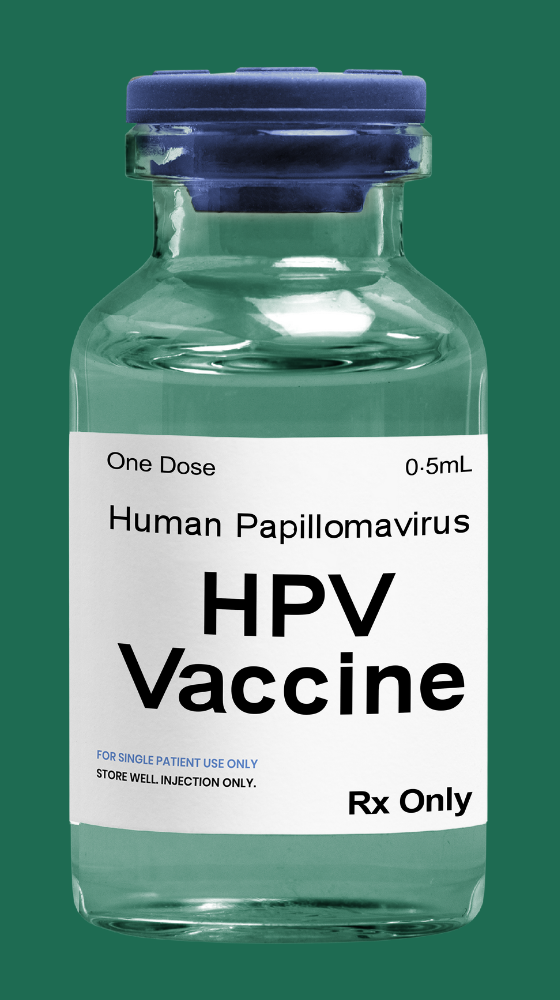Human Papillomavirus Vaccine in Cancer Survivors
The human papillomavirus (HPV) is a double-stranded DNA virus with over 200 genotypes that spreads by direct contact and infects epithelial tissues of the skin and mucous membranes. HPV is one of the most common sexually transmitted infections with the highest rate of acquisition seen in adolescents and young adults. Infection with HPV commonly causes warts that affect the skin and oral and genital mucosa, and are most commonly associated with HPV types 6 and 11. However, certain HPV genotypes can also cause intraepithelial neoplasia and invasive cancers affecting the anogenital tract, oropharynx, and skin. The large majority of HPV-related cancers are caused by seven oncogenic HPV subtypes: HPV-16, 18, 31, 33, 45, 52, 58, with HPV types 16 and 18 associated with the majority of cases.
Young cancer survivors are at increased risk for developing HPV-related malignancies, with female and male survivors at 1.4- to 2.5-fold excess risk, respectively, compared with the general population. Fortunately, vaccines are available to protect against the HPV subtypes most frequently associated with the development of HPV-associated genital warts and cancers. The HPV vaccine has been shown to be safe, highly immunogenic, and efficacious in the general population; however, HPV vaccine uptake has lagged significantly behind the uptake of other vaccines targeted for pre-adolescents.
Participating Institutions
University of Alabama at Birmingham, Birmingham, AL
St. Jude Children’s Research Hospital, Memphis, TN
City of Hope, Duarte, CA
University of Michigan, Ann Arbor, MI
Emory University, Atlanta, GA.
Funding
National Cancer Institute
Merck, Sharp & Dohme
ALSAC
Publications
Landier W, Bhatia S, Wong FL, York JM, Flynn JS, Henneberg HM, Singh P, Adams K, Wasilewski-Masker K, Cherven B, Jasty-Rao R, Leonard M, Connelly JA, Armenian SH, Robison LL, Giuliano AR, Hudson MM, Klosky JL. Immunogenicity and safety of the human papillomavirus vaccine in young survivors of cancer in the USA: a single-arm, open-label, phase 2, non-inferiority trial. Lancet Child Adolesc Health. 2021. Epub 2021/11/13. doi: 10.1016/S2352-4642(21)00278-9. PubMed PMID: 34767765.
Klosky JL, Hudson MM, Chen Y, Connelly JA, Wasilewski-Masker K, Sun CL, Francisco L, Gustafson L, Russell KM, Sabbatini G, Flynn JS, York JM, Giuliano AR, Robison LL, Wong FL, Bhatia S, Landier W. Human Papillomavirus Vaccination Rates in Young Cancer Survivors. Journal of clinical oncology : official journal of the American Society of Clinical Oncology. 2017;35(31):3582-90. Epub 2017/08/25. doi: 10.1200/JCO.2017.74.1843. PubMed PMID: 28837404; PMCID: PMC5662846.
Cherven B, Castellino SM, Chen Y, Wong FL, York JM, Wasilewski-Masker K, Hudson MM, Bhatia S, Klosky JL, Landier W. Intent and subsequent initiation of human papillomavirus vaccine among young cancer survivors. Cancer, 2019 Nov 1; 125(21):3810-3817. [ePub ahead of print 11 Jul 2019] PMID 31291010.
York JM, Klosky JL, Chen Y, Connelly JA, Wasilewski-Masker K, Giuliano AR, Robison LL, Wong FL, Hudson MM, Bhatia S, Landier W. Patient-level Factors Associated with Lack of Health Care Provider Recommendation for the Human Papillomavirus Vaccine Among Young Cancer Survivors. J Clin Oncol, 2020 Sep 1;38(25):2892-2901 [ePub ahead of print 18 Jun 2020]. PMID: 32552278.
Cherven B, Klosky JL, Chen Y, York JM, Heaton K, Childs G, Flynn JS, Connelly JA, Wasilewski-Masker K, Robison LL, Hudson MM, Wong FL, Bhatia S, Landier W. Sexual behaviors and human papillomavirus vaccine non-initiation among young adult cancer survivors. J Cancer Surviv. 2021. Dec; 15(6):942-950. Epub 7 Feb 2021. PMID: 33547560.